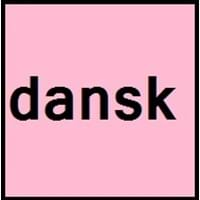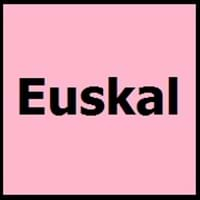Countries
Denmark, European Union, Faroe Islands, Greenland, Nordic Council
Basque Autonomous Community, Navarre
National Language
Denmark, Faroe Islands, Germany, Greenland
France, Spain
Second Language
Not spoken in any of the countries
Not spoken in any of the countries
Speaking Continents
Europe, North America, South America
Asia, Europe
Minority Language
Argentina, Brazil, Canada, Germany, Greenland, Norway, Sweden, United States of America
Not spoken in any of the countries
Regulated By
Dansk Sprognævn (Danish Language Committee)
Euskaltzaindia, National Languages Committee
Interesting Facts
- Danish, Norwegian and Swedish are mutually intelligible, that means if u learn Danish is almost like learning three languages in one.
- There are 9 vowels in Danish language, which can be pronounced in 16 different ways.
- The Basque language is the oldest European language.
- Basque alphabet include many Roman letters.
Similar To
Norwegian and Swedish
Spanish
Derived From
Old Norse Language
Not Available
Alphabets in
Danish-Alphabets.jpg#200
Basque-Alphabets.jpg#200
Writing Direction
Left-To-Right, Horizontal
Not Available
Thank You
Mange tak
Eskerrik asko
How Are You?
Hvordan har du det?
Zer moduz?
Good Evening
God aften
Arratsalde on
Good Afternoon
God eftermiddag
Arratsalde on
Good Morning
God morgen
Egun on
I Love You
Jeg elsker dig
Maite zaitut
Excuse Me
Undskyld mig
Barkatu
Dialect 1
Scanian
Navarro-Lapurdian
Where They Speak
Sweden
France
Dialect 2
Jutlandic
Souletin
Where They Speak
Denmark
France, Soule, Spain
How Many People Speak
Not Available
Dialect 3
Bornholmsk
Biscayan
Where They Speak
Island of Bornholm
Spain
Speaking Population
Not Available
Not Available
Native Name
dansk
Not available
Alternative Names
Dansk, Rigsdansk
Euskara, Euskera, Vascuense
French Name
danois
basque
German Name
Dänisch
Baskisch
Pronunciation
[d̥ænˀsɡ̊]
Not Available
Ethnicity
Danish people or Danes
Basque people
Origin
c. 1100 AD
c. 1000
Language Family
Indo-European Family
Vasconic Family
Subgroup
Not Available
Not Available
Branch
Not Available
Not Available
Early Forms
Old Danish, Early Modern Danish
Proto-Basque, Aquitanian
Standard Forms
Rigsdansk
Basque
Signed Forms
Signed Danish
Not Available
Scope
Individual
Not Available
ISO 639 6
Not Available
Not Available
Glottocode
dani1284
basq1248
Linguasphere
5 2-AAA-bf & -ca to -cj
40-AAA-a
Language Type
Living
Not Available
Language Linguistic Typology
Subject-Verb-Object
Subject-Object-Verb
Language Morphological Typology
Fusional
Agglutinative
All Danish and Basque Dialects
Most languages have dialects where each dialect differ from other dialect with respect to grammar and vocabulary. Here you will get to know all Danish and Basque dialects. Various dialects of Danish and Basque language differ in their pronunciations and words. Dialects of Danish are spoken in different Danish Speaking Countries whereas Basque Dialects are spoken in different Basque speaking countries. Also the number of people speaking Danish vs Basque Dialects varies from few thousands to many millions. Some of the Danish dialects include: Scanian, Jutlandic. Basque dialects include: Navarro-Lapurdian , Souletin. Also learn about dialects in South American Languages and North American Languages.
Danish and Basque Speaking population
Danish and Basque speaking population is one of the factors based on which Danish and Basque languages can be compared. The total count of Danish and Basque Speaking population in percentage is also given. The percentage of people speaking Danish language is Not Available whereas the percentage of people speaking Basque language is Not Available. When we compare the speaking population of any two languages we get to know which of two languages is more popular. Find more details about how many people speak Danish and Basque on Danish vs Basque where you will get native speakers, speaking population in percentage and native names.
Danish and Basque Language Codes
Danish and Basque language codes are used in those applications where using language names are tedious. Danish and Basque Language Codes include all the international language codes, glottocodes and linguasphere.





